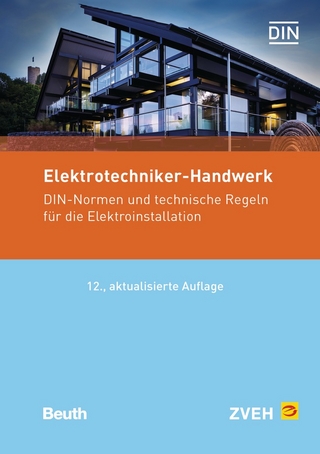
Nanoparticles: An Emerging Technology for Oil Production and Processing Applications
Springer International Publishing (Verlag)
978-3-319-12050-8 (ISBN)
Nashaat N. Nassar is Assistant Professor in the Department of Chemical and Petroleum Engineering at the Schulich School of Engineering in the University of Calgary (AB, Canada). He received his BSc in chemical engineering from An-Najah National University (Nablus, Palestine) in 2000, his MSc in chemical engineering from McGill University (QC, Canada) in 2003, and his PhD in chemical engineering from the University of Calgary in 2008. His research interests are in the areas of nanotechnology and its applications for energy and the environment, especially in heavy oil upgrading and recovery, air pollution control and wastewater treatment; polymer processing; and nanocomposites. He is also an expert in chemical engineering education, especially in process development, effluent treatment processes and process design, as he taught more than 20 different courses at both graduate and undergraduate levels. He has won a number of awards and prizes. He has given more than 40 conference presentations and delivered a number of keynote speeches at local and international levels. He is an author/coauthor of more than 45 refereed scientific journal articles and book chapters, and he is a professional member of the Association of Professional Engineers and Geoscientists of Alberta. Prof. Dr. Francisco Carrasco Marín is Professor of Inorganic Chemistry at the University of Granada in Spain. He received his Bachelor and PhD degrees in Chemistry in 1984 and 1989, respectively, from the Granada University. He was a research associate in the Department of Materials Science and Engineering of the Pennsylvania State University (USA) in the 90 s. After that he has carried out different research stays at the Department of Chemical Engineering of the Pennsylvania State University, USA. He has worked in different research projects as principal researcher, has supervised 4 PhD thesis and published 60 scientific articles in peer-review journals and book chapters and has presented different communications at Carbon and Catalysis Conferences. Dr. Pereira graduated as a Chemist in 1976 and obtained a doctorate in heterogeneous catalysis, both from L'Université de Poitiers, France, in 1979. He was a chemical engineering professor at the "Universidad de Los Andes" in Merida-Venezuela for seven years and a postdoctoral fellow at the Lawrence Berkeley Laboratory-University of California, Berkeley during the period Oct.1987-Dec.1990. He has since dedicated his professional and research activities to catalysts and catalytic processes development using both steam and hydrogen for heavy oils and residuals upgrading. He has also published on the Hydrogen generation from coal steam gasification and patented first on a catalyst for methane coupling, to produce Ethylene/ethane. Dr. Pereira is the author of more than 60 published articles and presentations, and more than 10 International Conferences and Seminars. He dedicated 14 years as a Research and Development Leader at a major Petroleum corporation where he co-invented and coordinated the development of the two major competitive upgrading technologies, named Aquaconversion and HDHplus. Dr. Pereira has 7 patents on the areas and processes above mentioned. Farid B. Cortés obtained his title as a Chemical Engineer in 2004 from Universidad Nacional de Colombia. Later, he graduated as a Ms. in Chemical Engineering and Ph.D in 2006 and 2009, respectively. He is associate professor at the Department of Chemical and Petroleum Engineering in Universidad Nacional de Colombia since 2011. He is the author of more than 40 published articles.
Chapter 1. Nanoparticle Preparation, Stabilization and Control over Particle Size.- Chapter 2. Nanoparticles as Potential Agents for Enhanced Oil Recovery.- Chapter 3. Nanoparticles as Adsorbents for Asphaltenes.- Chapter 4. Nanoparticles as catalyst for asphaltenes and waste heavy hydrocarbons upgrading.- Chapter 5. Effect of Pressure on Thermo- and Thermocatalytic Oxidation of Asphaltenes.- Chapter 6. Nanoparticles for Heavy Oil Upgrading.- Chapter 7. Nanotechnology Applications for Viscosity Reduction of Heavy and Extra-Heavy Oils: A Review.- Chapter 8. Using Nanoparticles as Gas Foam Stabilizing Agents for Enhanced Oil Recovery Applications .- Chapter 9. Influence of Surfactant Adsorption on Surface-Functionalized Silica Nanoparticles For Gas Foam Stability.- Chapter 10. Nanoparticles for Drilling, Cementing, Hydraulic Fracturing and well stimulation Fluids .- Chapter 11. Double Purpose Drilling Fluid Based on Nanotechnology: Drilling-Induced Formation Damage Reduction and Improvement in Mud Filtrate Quality .- Chapter 12. Evaluation from Laboratory to Field Trial of Nanofluids for CaCO3 Scales Inhibition in Oil Wells.- Chapter 13. Removal of Uranium-238 from Flowback Water of Hydraulic Fracturing Processes in Unconventional Reservoirs using Phosphorus- and Nitrogen-Functionalized Activated Carbons.- Chapter 14. Nanopaticles for cleaning up Oil Sand Process-affected Water.- Chapter 15. Challenges and Uncertainties of Using Nanoparticles in Oil and Gas Applications.
| Erscheint lt. Verlag | 17.2.2022 |
|---|---|
| Reihe/Serie | Lecture Notes in Nanoscale Science and Technology |
| Zusatzinfo | VI, 518 p. 202 illus. |
| Verlagsort | Cham |
| Sprache | englisch |
| Maße | 155 x 235 mm |
| Themenwelt | Technik ► Elektrotechnik / Energietechnik |
| Schlagworte | Application of Nanofluids • Cracking and Gasification of Asphaltenes • Determination of Reservoir Saturations • Environmental Applications of Nanoparticles • Eor/Ior • Formation Damage Remediation • Heavy Oil Upgrading • Nanotechnology in Oil Industry • Recovery Enhancement • Remediation of Oil Spills • Wettability Alteration |
| ISBN-10 | 3-319-12050-6 / 3319120506 |
| ISBN-13 | 978-3-319-12050-8 / 9783319120508 |
| Zustand | Neuware |
| Haben Sie eine Frage zum Produkt? |
aus dem Bereich


